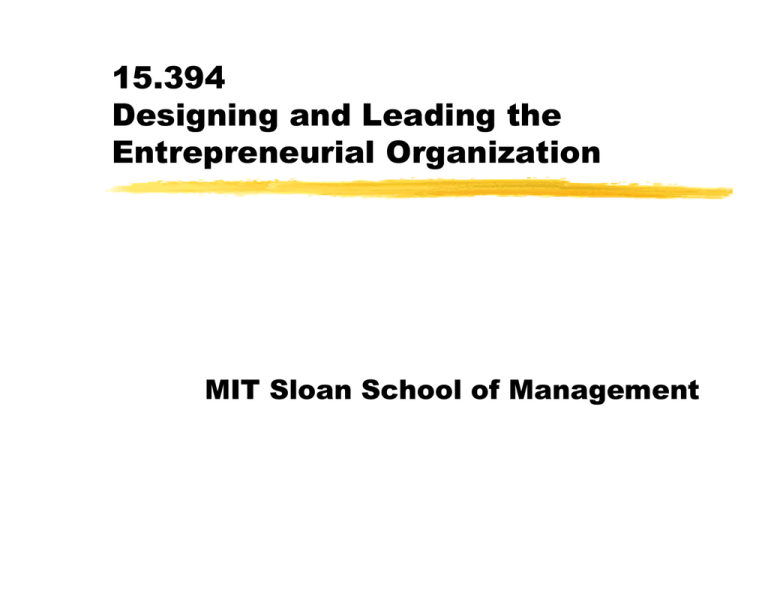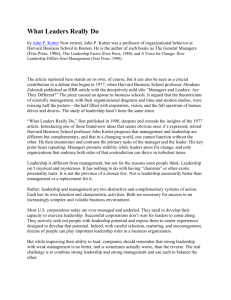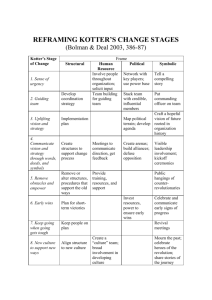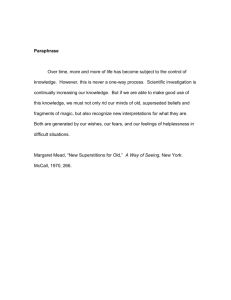Document 13613754
advertisement

15.394 Designing and Leading the Entrepreneurial Organization MIT Sloan School of Management Why Managers Derail Track Record Brilliance Commitment Sacrifice Charm Ambition Adapted from: Source of Initial Success Can Become Fatal Flaws Makes an impressive impact in functional or technical area Seen as too narrow in a particular area Seen as uncommonly bright Intimidating; dismissive of other people’s ideas Extremely loyal to the organization Defines life in terms of work; expects others to do the same Capable of considerable charisma and warmth Uses selectively to manipulate other people Does whatever is required to achieve success Does what is necessary to achieve personal success, even at the expense of others in the organization Morgan W. McCall, High Flyers: Developing the Next Generation of Leaders. (1998) Harvard Business School Press Origins of the Characteristics Required to Provide Effective Leadership Origins Personal Requirements Needed for Providing Effective Leadership 1. Inborn capacity 1. Motivation 2. Early childhood (building on and supplementing inborn capacity) 2. Personal values 3. Formal education (building on and supplementing attributes from 1 and 2) 4. Reputation and track record 4. Career experiences (building on and supplementing attributes from 1, 2, and 3) 3. Abilities and skills 5. Relationships in the firm and industry 6. Industry and organizational knowledge NOTE: Primary effects only (e.g., the weaker casual links [from education to personal values, for example] are not shown in the exhibit). Source: John P. Kotter (1988) The Leadership Factor, New York: The Free Press References and Resources John P. Kotter. The Leadership Factor. New York: Free Press. 1988. Morgan W. McCall, Jr., Michael M. Lombardo, and Ann M. Morrison. 1988. The Lessons of Experience: How Successful Executives Develop on the Job. New York: Free Press. Morgan W. McCall, Jr., 1998. High Flyers: Developing the Next Generation of Leaders. Boston, MA: Harvard Business School Press. Some Requirements for Effective Leadership in Senior Management Jobs in Complex Business Settings (John P. Kotter, 1988. The Leadership Factor) Industry and Organizational Knowledge ? ? Broad knowledge of industry (market, competition, products, technologies) Broad knowledge of the company (the key players and what makes the tick, the culture, the history, the systems) Relationships in the Firm and Industry ? Broad set of solid relationships Reputation and Track Record ? Excellent reputation and a strong track record in a broad set of activities Abilities and Skills ? ? Keen mind (moderately strong analytical ability, good judgment, capacity to think strategically and multi dimensionally) Strong interpersonal skills (ability to develop good working relationships quickly, empathy, ability to sell, sensitivity to people and human nature) Personal Values ? High integrity (broadly values all peoples and groups) Motivation ? ? High energy level Strong drive to lead (power and achievement needs backed by self-confidence).





